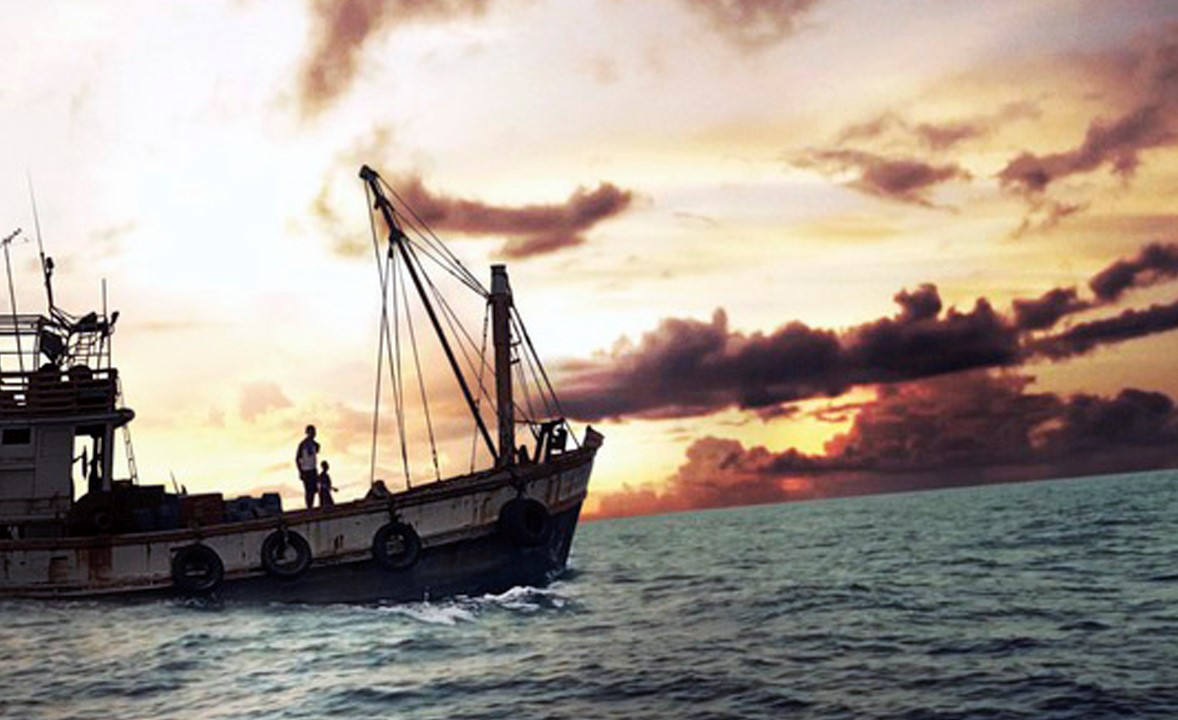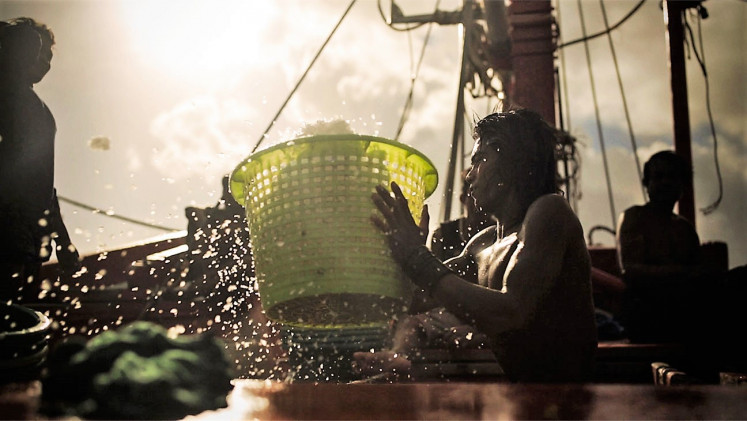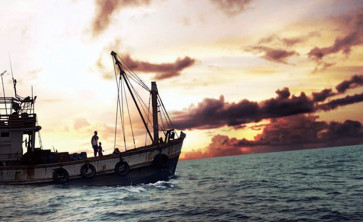Popular Reads
Top Results
Can't find what you're looking for?
View all search resultsPopular Reads
Top Results
Can't find what you're looking for?
View all search results‘Ghost Fleet’ reveals dark reality in fishing industry
Ghost Fleet, a documentary concerning human trafficking in Thailand’s fishing industry, raises questions about governmental inaction around the world, including in Indonesia.
Change text size
Gift Premium Articles
to Anyone
F
or most people, Patima Tungpuchayakul’s journey from Bangkok in Thailand to Maluku, an island just west of Papua in Indonesia, would seem dangerous and unlikely to succeed.
However, for Patima, it was just part of her job description.
She, along with members of her team from the Labor Rights Promotion Network (LPN), was in Indonesia to locate fishermen who had been enslaved by the Thai fishing industry and bring them home.
The daring journey was the focus of a 2018 documentary entitled Ghost Fleet, which was recently screened at the United States Embassy in Jakarta.
The US$7 billion fishing industry, which often faces a severe lack of labor, recruits needy workers from both inside and outside Thailand. Companies often promise jobs only to forge documents and paperwork and put helpless workers aboard ships, never to be seen or heard from for years, or ever again.
In the majority of cases, workers do not see land for years and are forced to work grueling 20-hour days, without compensation, for sadistic ship captains. They have no clue where they are and if they are lucky enough to escape they find themselves stranded in places far from their homelands. One of these hot spots is Maluku.
Darkest secret of the sea: Workers enslaved by the Thai fishing industry are subject to grueling work conditions and have been trapped for up to two decades in the most extreme cases. (Courtesy of Vulcan productions/-)



















